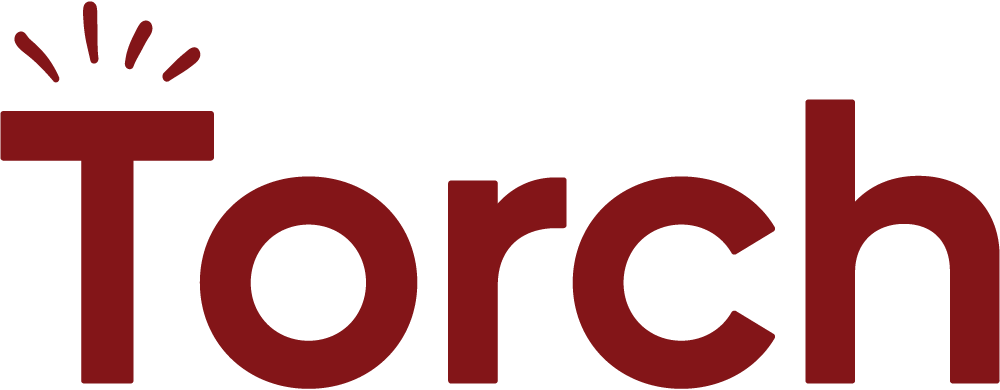As CEO turnovers continue to hit record highs, most organizations can expect to deal with leadership changes.
A leadership exit can disrupt any organization – from stock prices taking roller-coaster rides to employees feeling unnerved about ongoing changes. Fortunately, a solid succession plan can turn any exit into a smooth, well-managed transition.
In this post, we’ll provide best practices to keep in mind for succession planning and share examples of successful leadership transitions.
Top 3 best practices for developing a succession plan
A seamless leadership transition doesn’t happen overnight. That’s why a key part of succession planning is being able to think ahead at least three to five years. Here are four best practices to help you stay ahead of the curve.
1. Cultivate a pipeline of talent early
Building a high-quality talent pipeline is a challenging and time-consuming process. In fact, 74% of public and 52% of private companies reported that maintaining a robust talent pipeline is the most difficult aspect of CEO succession planning.
Unfortunately, the pipeline is something that many HR teams tend to neglect. 40% of companies report not having a single internal candidate to replace the CEO should he or she exit the position. This puts the company in a vulnerable position and will ultimately cost the company in several ways, from paying for executive search costs to seeing turnover amongst high-potential employees (HiPos) who feel overlooked for leadership positions.
That’s why, even though you might not have any open positions now, it’s important to start cultivating that pipeline today. This means accurately identifying who your HiPos are and making sure you’re constantly adding new candidates into the mix.
Want to learn how to identify, retain, and develop the HiPos in your organization?
2. Prioritize key positions and skills
Not all roles need a succession plan. Start by pinpointing the key positions within your organization that are critical to its success. These roles tend to have a significant impact on strategy, operations, and culture.
It’s also important to consider the strategic direction of your company. In the broader landscape, what environment will the company operate in? What are the company’s future goals, and what type of leader will help reach them?
After identifying key roles, break them down into the specific skills and competencies required to excel in them. When it’s time to focus on leadership development, you’ll have a clear understanding of the core skills and areas of growth your talent pool needs to cultivate.
3. Identify high-potential leaders
Identifying high-potential leaders requires a blend of observation, assessment, and nurturing.
Begin by assessing leaders who consistently achieve exceptional outcomes. Use tools such as performance reviews, 360-degree feedback, and leadership evaluations to understand their capabilities. Additionally, engage in ongoing discussions with leaders to understand their ambitions and aspirations. Those who display a willingness to learn and grow often indicate future leadership potential.
Equally crucial is pinpointing candidates who “walk the walk” when it comes to your organization’s values. These leaders consistently incorporate these values into their daily work, as reflected in their actions and decisions.
Plus, here’s two bonus best practices you should add to your list:
1. Invest in the ongoing development of leaders
Identifying high-performers is just the beginning; providing ongoing leadership development to ready them for future roles is crucial. In practice, this means helping HiPos develop relevant leadership skills, align with the company culture, and have opportunities to be exposed to various roles and responsibilities.
On the surface, companies invest a lot of resources in training their leaders. A Training Industry study found that organizations around the world spend $370 billion per year on leadership development. Yet 74% of executives were not prepared for the challenges they faced in senior leadership roles. This indicates a gap between the type of training that’s being provided and the intended effectiveness.
We’ve found that relationship-based development — like coaching and mentoring — is the most effective approach for leadership development. Not only are mentoring and coaching the two most unmet needs of HiPos, but 86% of companies report that they recouped their investment in coaching and more.
Moreover, research shows that relationship-based development, like coaching, is more effective at helping leaders develop new skills than traditional skill training, with 87% of leaders ranking coaching as “very to extremely effective” at skill development.
2. Regularly monitor and assess your leadership bench
Once you’ve gone through the process of appointing a new leader, you may feel like the job is over. Yet, organizations and people are constantly evolving, making it essential to regularly monitor and assess your leaders. This process ensures the HiPos leaders in your pipeline are still aligned with the needs of your company. It can also help you identify any new or rising HiPo leaders you may have missed in your initial assessment.
For example, you may have identified a promising HiPo leader in your talent pipeline. But, after a few years at your organization, it’s evident that they’re not growing in the direction that you anticipated. Without regularly assessing this individual’s performance, you wouldn’t be able to identify that they’re no longer a good fit for the executive position they were originally being considered for. And you may be passing up a better fit for the role in the process.
4 examples of succession planning in real life
Given the public nature of leadership transitions, we’ve seen many succession plans in action. While not all of them go as smoothly as anticipated, some companies do an excellent job of putting the best practices we outlined above into practice.
Johnson & Johnson
Peter Fasolo, the Chief Human Resource Officer at Johnson & Johnson, has overseen two major leadership transitions at the company. The first, in 2012, when then-CEO Bill Wheldon decided to move on and was eventually succeeded by Alex Gorsky. Then, a decade later, in 2022, when Grosky decided to serve as Executive Chairman, leaving the CEO role vacant.
In both transitions, Fasolo followed the same framework for identifying the ideal candidate. First and foremost, he evaluated the broader environment in which the new CEO would be working in. He considered current events that might impact new market opportunities, as well as the strategic direction of the company.
Fasolo also leveraged Johnson & Johnson’s Credo — the company’s 80-year-old value statement — to craft a CEO profile. This served as a guiding tool, helping him identify candidates who aligned with the company’s core values.
What Johnson & Johnson did right:
- Tied succession planning to the strategic direction of the company
- Prioritized leaders who aligned with the company’s core values
- Performed regular talent reviews
McCormick & Co.
In 2008, spice and flavorings giant McCormick & Co. transitioned its CEO position from Robert Lawless to his successor Alan Wilson using a succession model that was praised for being thoughtful, comprehensive, and well-executed. Lawless made a point of establishing a transparent timeline of five years, planning his transition to a non-executive chairman of the board role. He also tied part of his discretionary compensation to succession planning, proving his investment in finding and preparing the right person.
What McCormick & Co. did right:
- Developed its own robust succession planning over the course of many years, taking its time to intentionally identify and create thorough development strategies for all senior executives
- Monitored the progress of its potential candidates over several years before settling on Wilson, who demonstrated a strong fit with the company culture and a deep understanding of front-line issues
IBM
Virginia Rometty’s succession as CEO of IBM in 2012 is also a case of internal succession planning done well. Rometty’s advancement worked well because of her cultural fit, and because of the professional development systems that allowed her to succeed based on merit and become IBM’s first female CEO. HR analyst Josh Bersin said of Rometty’s appointment: “IBM’s talent management process is very mature, integrated, and global. At the executive level, the company takes development planning and succession very seriously.”
What IBM did right:
- Rometty started at IBM as a systems engineer, eventually climbing the ranks upward to SVP and Group Executive for Sales, Marketing, and Strategy before being offered the CEO role
- She’s a prime example of an incoming CEO who was well-entrenched in the company culture, known to the board, and had a sterling track record
Barneys New York
Luxury retailer Barneys New York went through a long-planned change as Daniella Vitale stepped into the CEO role in 2017, replacing her predecessor and mentor Mark Lee. With her long tenure in the high-end fashion retail industry, Vitale was considered “uniquely qualified” to run Barneys. She worked as an assistant buyer while still in school at LIM College and moved her way up through lateral moves between major brands, including Ferragamo, Armani, and Gucci, before joining Barneys in 2010 as a Chief Merchant.
What Barneys New York did right:
- Vitale was given substantial leadership opportunities and had experience running nearly every facet of the organization by the time she was offered the CEO position
- Lee spent a long time investing in Vitale’s success, and he was instrumental in putting together a formal five-year succession plan specifically for her
Back to You
Succession planning is a long and laborious process. But done right – by cultivating a high-quality talent pipeline, developing your HiPo leaders, and regularly assessing fit – it can make an otherwise stressful transition much smoother.









